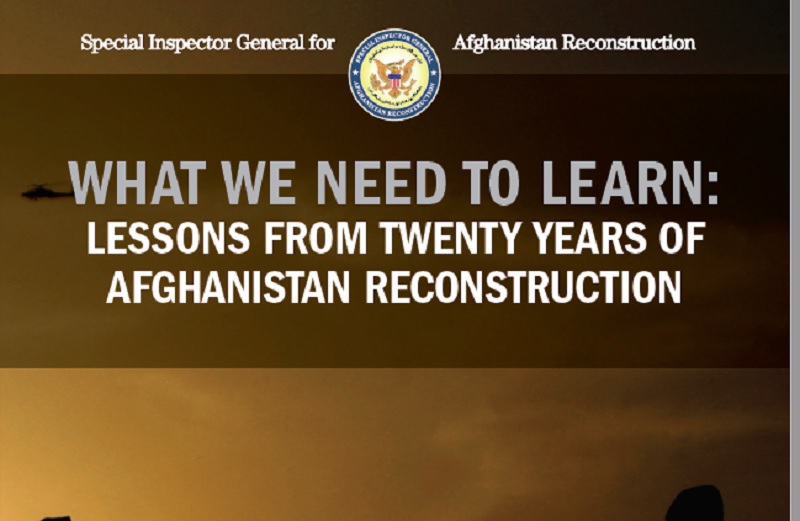By Agha Iqrar Haroon
Thank God Pakistan is out of the blame game at least for the time being over the historic US-allied defeat in Afghanistan and now introspective and retrospective thinking is taking place within the US power grid.
Admiral (retd) Mike Mullen, who served the United State under Presidents George W. Bush and Barack Obama, has acknowledged the US policy in Afghanistan was deeply flawed. In an interview with Fred Kaplan, Mullen said that the US mistook the situation in Afghanistan and stated that it was hard to deny the reality that deep-rooted corruption in the Afghan government, misunderstanding with the situation, and flawed policy were some of the causes of what happened in Afghanistan. One should remember that Mullen had been the Chairman of the Joint Chiefs of Staff from October 2007 till September 2011. He also said that the US should have pulled out troops after Osama bin Laden was killed.
In his ABC News interview, he accepted that the Afghan government had a legitimacy problem in the eyes of the people and the core issue was corruption.
Now US Think Tanks are also sharing their viewpoint on the Fall of Kabul, saying that the US could send a million troops but it could be useless because that wouldn’t restore legitimacy in Karzai/Ghani governments.
Pakistan had been saying to the whole world that instead of blaming Pakistan for the ills of the Kabul government, the US allies should work to control corruption in former Afghan governments and mitigate legitimacy crises of US-installed governments and the Constitution. The corruption never ended in Kabul till it was fallen on August 15, 2021.
Moreover, the US had been changing its goalposts throughout its 20 years in Afghanistan. First, it was hunting Osama Bin Laden and Al-Qaeda then it was the restoration of women’s rights, then it was nation-building, and then this and then that —- an unending story of changing goals and narratives for staying in Afghanistan. However, it never worked on wiping out corruption in order to win the hearts and minds of the Afghan people.
Meanwhile, the Special Inspector General For Afghanistan Reconstruction (SIGAR) in its latest report published on August 21 has strongly criticized the US Policy in Afghanistan and says that the US government did not understand the Afghan context, therefore, it failed to tailor its efforts accordingly. The report said that the ignorance of prevailing social, cultural, and political contexts in Afghanistan has been a significant contributing factor to failures at strategic, operational, and tactical levels.
The report further says:
“The US government’s inability to get the right people into the right jobs at the right times was one of the most significant failures of the mission. It is also one of the hardest to repair. The US personnel in Afghanistan were often unqualified and poorly trained, and those who were qualified were difficult to retain. DOD policy advisors watched American TV shows to learn about policing, civil affairs teams were mass-produced via PowerPoint

presentations and every agency experienced annual lobotomies as staff constantly rotated out, leaving successors to start from scratch and make similar mistakes all over again. These dynamics had direct effects on the quality of reconstruction. There were often not enough staff to oversee the spending, and certainly not enough who were qualified to do so. This was particularly true for civilian agencies, such as State or the US Agency for International Development (USAID), which should have been leading the effort but were unable to meaningfully perform that role. This compelled the better-resourced DOD to fill the void, creating tensions with civilian agencies that often had different ideas but fewer staff to offer”.
The SIGAR had been releasing reports indicating large-scale corruption, drug business, the plundering of US taxpayer money, and money laundering under previous Kabul regimes. However, the United States kept silent on such reports and did not take any action against previous Kabul regimes.
The US had a simple formula in Afghanistan and that was to blame Pakistan for everything and for every failure of previous Afghan governments and for faulty US policy in Afghanistan. The US and its strategic partner in the region — India had been busy bullying Pakistan for sins it had never committed while Kabul regimes had been enjoying the pleasure of corruption and now both are angry about what had happened on August 15, 2021. While cursing the US policy in Afghanistan, the Hindustan Times shared the Indian design of destabilizing Pakistan from Afghan soil and said in its Editorial titled “The Fall of Afghanistan” that India had lost the ability to covertly hurt Pakistan after falling of the Kabul government.
Is it only Afghanistan where the US accepted intelligence failures and accepted its faulty policy after killing thousands of thousands of innocent people? No, it is not the first case indeed. After running Iraq, the US accepted intelligence failure regarding so-called Weapons of Mass Destructions (WDM). After defeat in Saigon, the US accepted several failures. The US withdrew from the Yemen war saying that it was a wrong decision after killing thousands of people. We may remember that the US failed to provide tangible proof of usage of chemical warfare in Syria also though it was bombed with rubbles.
The US always found scapegoats for its failures and the latest was Pakistan. Should the US and its allies not revisit their policy of finding scapegoats and should think and review what they are doing before facing historic defeats?
Disclaimer:
The views and opinions expressed in this article/Opinion/Comment are those of the author and do not necessarily reflect the official policy or position of the DND Thought Center and Dispatch News Desk (DND). Assumptions made within the analysis are not reflective of the position of the DND Thought Center and Dispatch News Desk News Agency.
